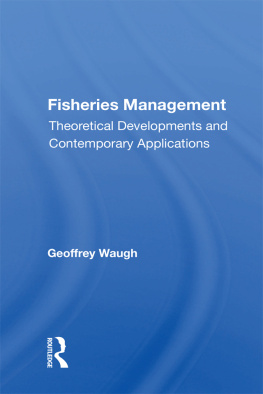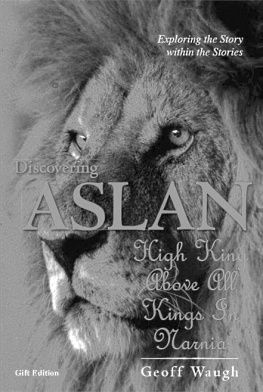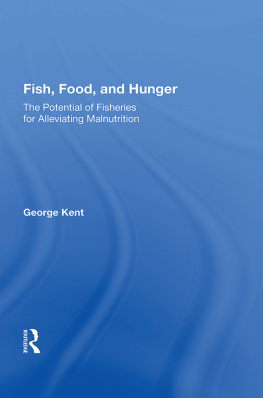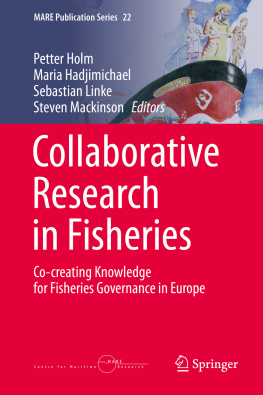Fisheries Management
Westview Replica Editions
The concept of Westview Replica Editions is a response to the continuing crisis in academic and informational publishing. Library budgets for books have been severely curtailed. Ever larger portions of general library budgets are being diverted from the purchase of books and used for data banks, computers, micromedia, and other methods of information retrieval. Interlibrary loan structures further reduce the edition sizes required to satisfy the needs of the scholarly community. Economic pressures on the university presses and the few private scholarly publishing companies have severely limited the capacity of the industry to properly serve the academic and research communities. As a result, many manuscripts dealing with important subjects, often representing the highest level of scholarship, are no longer economically viable publishing projectsor, if accepted for publication, are typically subject to lead times ranging from one to three years.
Westview Replica Editions are our practical solution to the problem. We accept a manuscript in camera-ready form, typed according to our specifications, and move it immediately into the production process. As always, the selection criteria include the importance of the subject, the work's contribution to scholarship, and its insight, originality of thought, and excellence of exposition. The responsibility for editing and proofreading lies with the author or sponsoring institution. We prepare chapter headings and display pages, file for copyright, and obtain Library of Congress Cataloging in Publication Data. A detailed manual contains simple instructions for preparing the final typescript, and our editorial staff is always available to answer questions.
The end result is a book printed on acid-free paper and bound in sturdy library-quality soft covers. We manufacture these books ourselves using equipment that does not require a lengthy make-ready process and that allows us to publish first editions of 300 to 600 copies and to reprint even smaller quantities as needed. Thus, we can produce Replica Editions quickly and can keep even very specialized books in print as long as there is a demand for them.
About the Book and Author
Fisheries Management: Theoretical Developments and Contemporary Applications
Geoffrey Waugh
Among the problems of the modern fisheries industry is the persistent trend toward the severe depletion of fish stocks, resulting in low catch rates and poor economic returns, along with unnecessary accumulations of capital investments. Dr. Waugh argues that these problems call for effective management procedures based on bioeconomic modelling, which integrates the population dynamics of fish resources with the economic processes of harvesting and marketing. Assessing developments in bioeconomic theory, Dr. Waugh discusses why recent advances have not been fully translated into improvements in the management of marine fisheries. He cites the difficulties of reaching a consensus concerning suitable objectives for fisheries management, as well as the problems of designing a regulatory framework to improve the operation of the industry.
To illustrate the utility of bioeconomic modelling, Dr. Waugh presents case studies of two Australian fisheries. A dynamic, stochastic, numeric model is developed for the Exmouth Gulf Prawn Fishery to provide insights into the optimal exploitation of a yearly resource, where fluctuations in recruitment, natural mortality, and catchability are important. The study of the New South Wales Abalone Fishery highlights the difficulties of obtaining the necessary overview of a fishery and the problems in collecting the data required for modelling and management.
Geoffrey Waugh is senior lecturer in economics at the University of New South Wales, Australia and consultant to the New South Hales government on fisheries management.
Fisheries Management
Theoretical Developments and Contemporary Applications
Geoffrey Waugh
First published 1984 by Westview Press, Inc.
Published 2018 by Routledge
52 Vanderbilt Avenue, New York, NY 10017
2 Park Square, Milton Park, Abingdon, Oxon OX14 4RN
Routledge is an imprint of the Taylor & Francis Group, an informa business
Copyright 1984 Taylor & Francis
All rights reserved. No part of this book may be reprinted or reproduced or utilised in any form or by any electronic, mechanical, or other means, now known or hereafter invented, including photocopying and recording, or in any information storage or retrieval system, without permission in writing from the publishers.
Notice:
Product or corporate names may be trademarks or registered trademarks, and are used only for identification and explanation without intent to infringe.
Library of Congress Cataloging in Publication Data
Waugh, Geoffrey.
Fisheries management.
1. Fishery management. I. Title.
SH328.W38 1983 639.3 83-16816
ISBN 13: 978-0-367-02040-8 (hbk)
It has been set forth in former years that 'the question of immature fish' was an immature question. This charge may have been a just one. Possibly the question when first urged was an immature one; but in a few more years we may hope that the fishes, as well as the questions, will approach maturity more and more, i.e. if the fishes are not caught too soon and the questions not forgotten. It is my wish that the question, What is over-fishing? should not be forgotten, but discussed and investigated in every possible way.
Dr. C.G. Joh.Petersen, Copenhagen, 1903.
Contents
, Charles W. Howe
This book joins a large, distinguished literature dealing with problems stemming from man's exploitation of marine fisheries. In addition to being written in a clear and exciting style, the book makes several notable contributions: (1) it relates developments in the bioeconomic theory of fisheries to the physical and political settings that historically stimulated these developments; (2) it investigates the reasons why practices in fisheries management have not kept up with the well accepted advances in bioeconomic theory; and (3) through two carefully executed case studies, it exhibits the art of applying the theory to the estimation of relevant benefit and cost functions and the ensuing derivation of optimum management policies.
Fisheries economists, biologists, and practitioners will find this book of direct relevance to their theoretical and applied work. Political scientists will find the origins of theoretical development and lagging applications of direct interest. Graduate students in these areas will find the book a useful reference work and a valuable addition to personal libraries. Everyone will find the book to be very good reading.
Charles W. Howe
University of Colorado
November 1983
Economic growth has meant increasing pressure on existing stocks of natural resources. Since these resources are in limited supply, conservation policy, aimed at the careful use of remaining stocks, assumes greater importance. Such a policy needs to be concerned with the allocation of resources between different uses both at a single point in time and over time. In terms of economic efficiency this allocation of resources should be such that the present value of net benefits through time is maximized.












